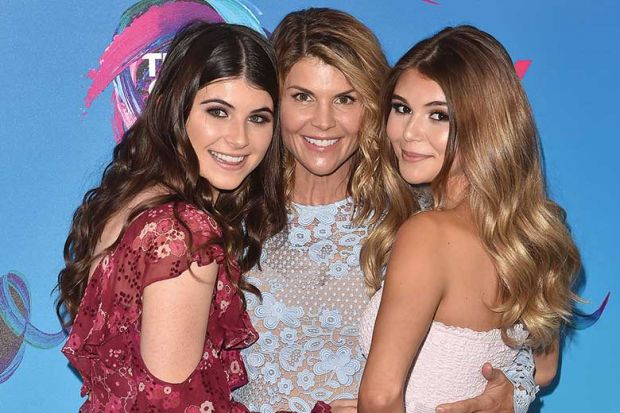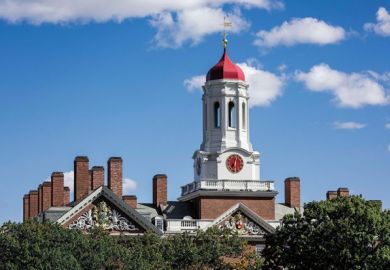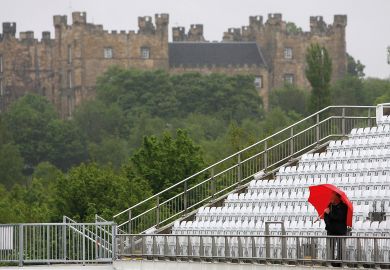For all its celebrity buzz, the university admissions scandal that has erupted in the US may be notable less for how it allegedly happened and who got charged than for the updated price: $6.5 million (£4.9 million).
That, according to the FBI, is the amount that one of the 33 parents accused in the case paid a corrupt college admissions adviser to help ensure their child’s entry into an elite US university.
It is a 160 per cent increase from just 20 years ago, when real estate developer Charles Kushner reportedly pledged $2.5 million to Harvard University to help win the admission of his son, Jared, now a top White House adviser to his father-in-law, US president Donald Trump.
Such comparisons, several experts said, make clear that despite the FBI’s show of stern moral outrage in announcing its largest ever university admissions investigation, paying money to secure an elite college admission for an applicant of questionable qualification is not necessarily a crime.
Instead, as with many types of white-collar exercises of financial muscle, the question of criminality largely reflects the choice of method: boosting an applicant’s candidacy by making a direct contribution to a college is respectable and legal, while doing it through an undisciplined sports coach or test preparation official is not.
The case as outlined involved coaches, testing officials and private admissions counsellors who accepted and relayed millions of dollars in bribes over the past eight years to falsify student applicants’ sporting and academic credentials to win them admission to institutions such as Yale, Stanford and Georgetown universities, the University of California, Los Angeles, and the University of Southern California.
The universities have all denied prior knowledge of the alleged bribes, and several have already suspended or fired any current coaches implicated in the case. Those charged include television stars Felicity Huffman and Lori Loughlin; former Yale women’s soccer coach Rudolph Meredith; Stanford sailing coach John Vandemoer; USC women’s soccer coach Ali Khosroshahin, USC women’s water polo coach Jovan Vavic, and USC associate athletic director Donna Heinel.
“Their actions were without a doubt insidious, selfish and shameful,” the special agent in charge of the FBI’s Boston office, Joseph Bonavolonta, told journalists. “[These] arrests should be a warning to others: you can’t pay to play.”
Such ethical clarity, however, is less apparent to many higher education experts. Only a few months earlier in Boston, a federal court judge heard evidence in Harvard’s affirmative action trial that the university regularly gives favourable admissions treatment to white applicants from well-connected families who made or were expected to make significant financial contributions to the institution.
The admissions scandal outlined by the FBI is “not inconsistent with what we already know to be true about higher education”, said Elizabeth Akers, an education policy expert and former White House economist in the George W. Bush administration.
“It just highlights the fact that there are these pathways to an elite education that money can buy you, and this is not the only one,” said Dr Akers, now a senior fellow at the Manhattan Institute.
And regardless of whether society judges particular pathways legal or illegal, experts said, the biggest victims remain the same: low-income and ethnic minority students who – according to studies of academic outcomes – could have made far better use of the opportunity to attend.
One such analysis, from Princeton University, found that low-income students who attended a top-tier college experienced a 6.7 per cent gain in earnings. Wealthy white students, by comparison, saw virtually no net gain.
“That makes it especially sad,” said Jessica Thompson, director of policy and planning at the Institute for College Access and Success, “that the limited spots that are available at those colleges are not fairly distributed at all.”
Two of the only students publicly associated with this week’s scandal are daughters of Ms Loughlin, who starred in the sitcom Full House. She and her husband are alleged to have paid $500,000 to get their children admitted to USC by having them listed as recruits for the university’s rowing team even though neither participates in the sport.
One of the daughters, Olivia Jade Giannulli, is known for posting videos to YouTube – that have 1.6 million subscribers – in which the 19-year-old revels in her celebrity. In them, Ms Giannulli said that she looked forward to “game days” and “partying” at USC, but “didn’t know how much” time she would actually spend in classes. “It’s so hard to try in school,” she wrote on Twitter, “when you don’t care about anything you’re learning.”
Ms Thompson said that top colleges have become merely a fashionable “status symbol” for some wealthy Americans.
Rather than US higher education serving as a force for equity, Ms Thompson said, “we actually now have evidence that it may be hardening social, economic and racial inequality in our country”.
Register to continue
Why register?
- Registration is free and only takes a moment
- Once registered, you can read 3 articles a month
- Sign up for our newsletter
Subscribe
Or subscribe for unlimited access to:
- Unlimited access to news, views, insights & reviews
- Digital editions
- Digital access to THE’s university and college rankings analysis
Already registered or a current subscriber? Login








